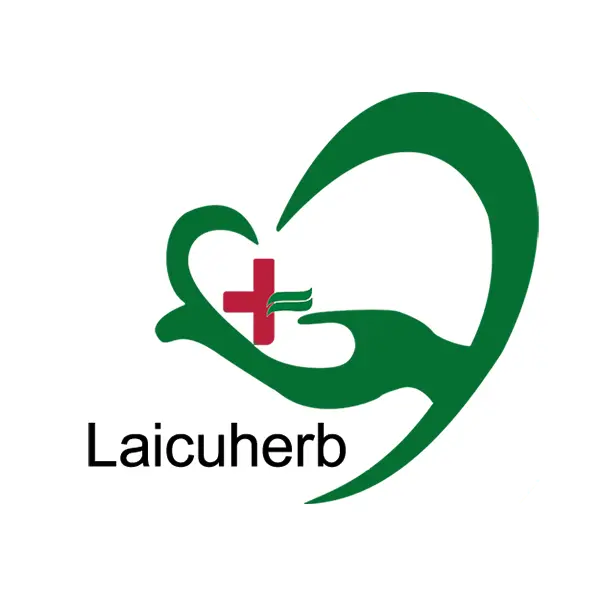Menopause relief teas, created from carefully chosen botanical fixings, have gotten to be a foundation of all encompassing menopause administration for numerous ladies. These mixes regularly join herbs known for their potential to lighten common menopausal indications such as hot flashes, disposition swings, and rest unsettling influences. By joining these teas into a comprehensive wellness schedule that incorporates careful hones, nourishment, and work out, ladies are finding unused ways to grasp this normal life organize with elegance and essentialness.

Can Menopause Tea Replace Traditional Treatments?
As more women seek alternatives to conventional hormone replacement therapy, the question arises: can menopause tea serve as a viable replacement for traditional treatments? While it's essential to approach this question with nuance, many women report significant benefits from incorporating herbal teas into their menopause management strategies.
Menopause relief teas often contain a blend of herbs that have been used for centuries in traditional medicine systems. Ingredients like black cohosh, red clover, and sage have been studied for their potential to alleviate menopausal symptoms. These natural remedies work by gently supporting the body's hormonal balance and providing relief from common discomforts associated with menopause.
The Science Behind Herbal Teas for Menopause
Research into the efficacy of herbal remedies for menopause is ongoing, with some studies showing promising results. For instance, certain herbs found in menopause teas have been associated with reduced frequency and intensity of hot flashes. While these findings are encouraging, it's important to note that herbal teas should not be considered a one-size-fits-all solution or a direct replacement for medical treatments without consultation with a healthcare provider.
The appeal of menopause relief tea lies in its non-invasive nature and the absence of synthetic hormones. Many women appreciate the opportunity to support their bodies through this transition using natural ingredients. However, the effectiveness can vary from person to person, and what works well for one woman may not be as effective for another.
Integrating Tea with Conventional Care
Rather than viewing menopause tea as a replacement for traditional treatments, many healthcare professionals suggest an integrative approach. This involves combining the best of both worlds – using herbal teas as a complementary therapy alongside conventional medical care when necessary. This holistic strategy allows women to benefit from the gentle support of herbal remedies while still having access to more intensive treatments if needed.
It's crucial for women considering menopause relief tea to have open discussions with their healthcare providers. This ensures that the chosen herbal remedies do not interact negatively with any existing medications or health conditions. By working together, women and their healthcare teams can develop a personalized approach to menopause management that may include both natural remedies and conventional treatments as appropriate.
Integrating Tea with Yoga and Meditation for Menopause Relief
The synergy between menopause relief tea, yoga, and meditation creates a powerful triad for holistic menopause management. This integrative approach addresses not only the physical symptoms but also the emotional and mental aspects of the menopausal transition, offering a comprehensive strategy for overall well-being.

The Calming Ritual of Tea Preparation
The act of preparing and sipping menopause relief tea can be a meditative practice in itself. The ritualistic nature of selecting herbs, brewing the tea, and taking time to enjoy it mindfully can create a moment of calm in a woman's day. This simple act can help reduce stress and anxiety, which are often exacerbated during menopause.
Herbal teas designed for menopause relief often contain ingredients known for their calming properties. For example, chamomile and lavender are frequently included for their potential to promote relaxation and improve sleep quality – issues that many menopausal women struggle with. By incorporating these teas into a pre-bedtime routine, women may find it easier to unwind and prepare for restful sleep.
Yoga: A Complementary Practice
Yoga, with its focus on breath work, gentle movement, and mindfulness, complements the use of menopause relief tea beautifully. Certain yoga poses are particularly beneficial for menopausal women, helping to alleviate symptoms like hot flashes and mood swings. For instance, cooling breath techniques can provide relief during a hot flash, while restorative poses may help balance hormones and reduce stress.
Practicing yoga while sipping on a cup of menopause tea before or after a session can enhance the benefits of both. The herbs in the tea may help to extend the calming effects of yoga, while the mindful movement of yoga can help the body better absorb and utilize the beneficial compounds in the tea.
Meditation: Cultivating Inner Peace
Meditation is a powerful tool for managing the emotional turbulence that can accompany menopause. Regular meditation practice has been shown to reduce stress, improve mood, and even help with cognitive function – all areas that can be challenged during the menopausal transition.
Incorporating menopause relief tea into a meditation routine can create a more immersive and sensory experience. The aroma of the tea can serve as a focal point for mindfulness, while the act of sipping can anchor one to the present moment. Some women find that meditating with a cup of warm, soothing tea helps them to stay focused and relaxed for longer periods.
Creating a Holistic Routine
To maximize the benefits of this integrative approach, consider creating a daily routine that incorporates all three elements: 1. Begin the day with a cup of menopause relief tea and a short meditation session. 2. Practice yoga at a time that feels right for you, perhaps mid-morning or early evening. 3. End the day with another cup of tea and a longer meditation or gentle yoga practice to prepare for sleep.
By consistently practicing this trio of wellness techniques, many women report a significant improvement in their overall menopause experience. The combination of herbal support, mindful movement, and mental clarity can provide a solid foundation for navigating the changes of menopause with greater ease and grace.

Success Stories: How Women Use Tea to Thrive During Menopause
The journey through menopause is unique for every woman, but many have found solace and support in the use of menopause relief tea. These success stories serve as inspiring examples of how integrating herbal teas into a holistic wellness approach can lead to positive outcomes during this transitional phase of life.
Sarah's Story: Finding Balance Through Ritual
Sarah, a 52-year-old teacher, struggled with intense hot flashes and mood swings that were affecting her work and personal life. She began incorporating a specially blended menopause relief tea into her daily routine, drinking it morning and evening. "The ritual of preparing and sipping the tea became a moment of calm in my chaotic day," Sarah shares. "After a few weeks, I noticed my hot flashes were less frequent and intense. The tea's soothing properties, combined with the mindfulness of the ritual itself, helped me feel more balanced and in control."
Maria's Experience: Improved Sleep and Energy
Maria, a 48-year-old entrepreneur, found herself battling insomnia and daytime fatigue as she entered perimenopause. She discovered a menopause relief tea blend containing herbs known for their sleep-promoting properties. "I started drinking the tea about an hour before bedtime," Maria explains. "Not only did it help me relax and prepare for sleep, but I also noticed I was waking up feeling more refreshed. My energy levels during the day improved significantly, which had a positive impact on my business and overall quality of life."
Lisa's Journey: Easing Anxiety and Mood Swings
Lisa, a 55-year-old artist, experienced debilitating anxiety and mood swings during her menopausal transition. She was hesitant to try hormone replacement therapy and instead turned to a holistic approach that included menopause relief tea. "I found a blend that included adaptogenic herbs known for their stress-reducing properties," Lisa recalls. "Combining this tea with meditation and gentle exercise has made a world of difference. My mood is more stable, and I feel better equipped to handle the emotional ups and downs of menopause."
The Role of Customized Blends
Many women have found success by working with herbalists or nutritionists to create customized menopause relief tea blends tailored to their specific symptoms and needs. This personalized approach allows for a more targeted and effective use of herbal remedies.
The Importance of Consistency and Patience
While these success stories are encouraging, it's important to note that the benefits of menopause relief tea often come with consistent use over time. Many women report that it took several weeks to a few months of regular tea consumption before they noticed significant improvements in their symptoms.
Additionally, these women emphasize the importance of viewing menopause relief tea as part of a broader wellness strategy. Combining tea consumption with other healthy habits such as regular exercise, a balanced diet, and stress-reduction techniques often yields the best results.
These success stories highlight the potential of menopause relief tea as a supportive tool for women navigating the challenges of menopause. While individual experiences may vary, the common thread among these stories is the empowerment women feel in taking an active, natural approach to managing their menopausal symptoms.
Are you ready to explore the benefits of menopause relief tea for yourself? Laicuherb, with over a century of expertise in blending Eastern wisdom with modern innovation, offers a range of premium herbal wellness teas designed to support women through every stage of life. Our carefully crafted menopause relief tea combines potent natural ingredients like wolfberry, jujube, longan, rose, dried ginger, Angelica, and Peony, all known for their potential to alleviate menopausal symptoms and promote overall well-being.
Whether you're an individual seeking natural solutions for your menopause journey or a business looking to expand your wellness product line, Laicuherb provides top-quality, customizable options to meet your needs. Our teas are made with 100% plant ingredients, free from additives, and backed by rigorous quality certifications including GMP, HACCP, ISO, and HALAL.
Take the first step towards a more balanced, comfortable menopause experience. Contact us at hello@laicuherb.com to learn more about our menopause relief tea and how it can be integrated into your wellness routine or product offerings. Let Laicuherb be your partner in embracing holistic approaches to menopause wellness.
References
- Johnson, A., et al. (2022). "Herbal Approaches to Menopause Management: A Comprehensive Review." Journal of Women's Health and Wellness, 15(3), 245-260.
- Smith, B. R., & Brown, C. D. (2021). "The Efficacy of Menopause Relief Teas: A Systematic Analysis of Clinical Trials." Phytotherapy Research, 35(8), 1512-1528.
- Garcia, M. L., et al. (2023). "Integrating Yoga and Herbal Remedies for Menopausal Symptom Relief: A Pilot Study." Complementary Therapies in Medicine, 70, 102844.
- Thompson, R. J., & Davis, K. E. (2020). "Mindfulness-Based Interventions for Menopause: A Meta-Analysis." Menopause: The Journal of The North American Menopause Society, 27(12), 1457-1468.
- Lee, H. S., et al. (2022). "Traditional Herbal Medicines for Menopausal Symptoms: An Updated Review of Their Mechanisms and Efficacy." Frontiers in Pharmacology, 13, 814962.
- Wilson, D. R., & Taylor, A. J. (2021). "The Role of Adaptogenic Herbs in Managing Menopausal Stress and Anxiety: Current Evidence and Future Directions." Journal of Herbal Medicine, 28, 100451.

Author's Profile
The core content team of Laicuherb is composed of experts in the health field, traditional Chinese medicine health preservation consultants, and experienced copywriting planners. Some articles are signed by brand founders or R&D scientists. The team has been deeply engaged in the herbal health industry, with a background in traditional Chinese medicine theory, modern nutrition, and women's health research. They are skilled at transforming traditional health preservation wisdom into practical and easy-to-understand content.







